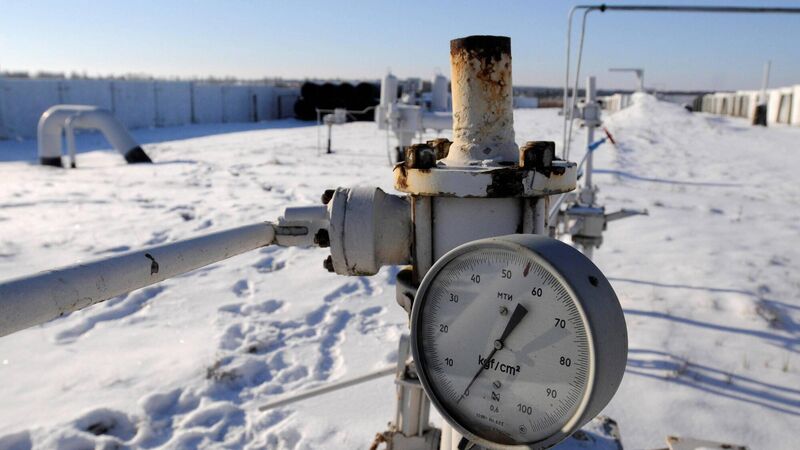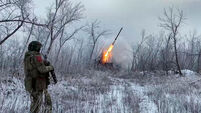Germany faces €220bn hit should Russian energy supplies be disrupted

Finance Minister Christian Lindner highlighted the huge challenges facing Germany as it tries to wean itself off Russian energy as quickly as possible while also pursuing a goal of climate neutrality by 2045.
Germany was warned it could face a €220bn hit to output over the next two years in the event of an immediate interruption in Russian energy supplies over the war in Ukraine.
Economic institutes advising the government in Berlin said in a joint forecast that a full halt in Russian natural gas imports would result in a “sharp recession”.
“The decision to become independent from Russian supplies of raw materials is likely to remain valid even when the military and political situation calms down again,” the report said. “That means part of the energy supply and energy-intensive industry must realign itself,” according to the report.
While the €220bn estimate is the equivalent of 6.5% of annual output, it’s nowhere near the almost €890bn in borrowing Germany carried out in 2020 and 2021 to shield the economy from the fallout of the pandemic.
Amid mounting casualties and reports of brutal atrocities, Germany has been under increasing pressure to justify its resistance to an embargo on Russian gas — widely seen as the ultimate leverage against President Vladimir Putin.
Ukraine snubbed a request by Frank-Walter Steinmeier, Germany’s president, to visit Kyiv this week following criticism for his past support for the Nord Stream 2 gas pipeline from Russia to Germany and for his role, when foreign minister, in encouraging reconciliation and dialogue with the Kremlin.
Finance Minister Christian Lindner highlighted the huge challenges facing Germany as it tries to wean itself off Russian energy as quickly as possible while also pursuing a goal of climate neutrality by 2045.
“Our world will not be the same again as it once was,” Mr Lindner, who’s chairman of the pro-business Free Democrats, said. “We need new business models, new ideas, new supply chains and new trade relationships,” he said.
Berlin-based DIW, one of the institutes involved in the estimate, said last week that Germany could be in a position to survive without Russian gas, which currently accounts for two-fifths of its gas deliveries. The group said a combination of high storage, bolstering other energy supplies and implementing programs to lower demand could offset Russia as soon as this winter.
That’s not a view that’s generally shared by the business community, with industry leaders including Deutsche Bank chief executive Christian Sewing warning of dire economic consequences if Russian supplies are severed.
Prices for German power for next year rose above €200 a megawatt-hour, the highest since December, as natural gas costs climbed.
Electricity prices in western Europe tend to follow gas, which rose sharply after Russia’s invasion of Ukraine. While costs for fuel have eased in recent weeks, they remain sensitive to any drop in flows. Gas is still five times more expensive than a year ago as the war continues to stoke supply fears.
“German power prices, for now, are unable to decouple from gas and coal price movements, especially for the remainder of 2022 and in 2023,” said Sabrina Kernbichler, an analyst at S&P Global. Although Germany and other European governments are pledging more renewables to displace gas, that will do little to ease near-term prices, she said.













